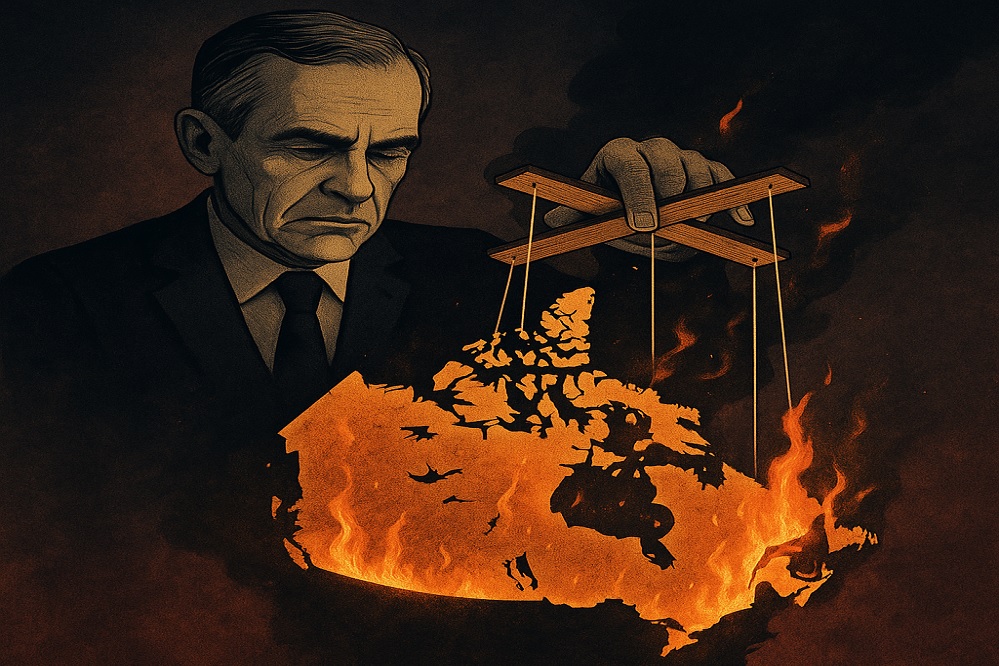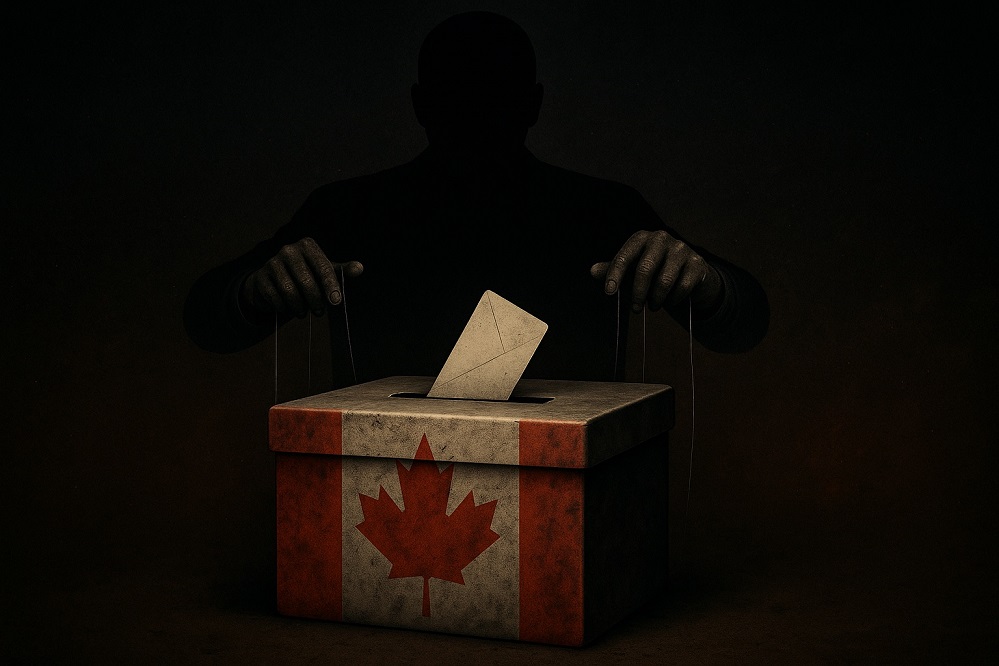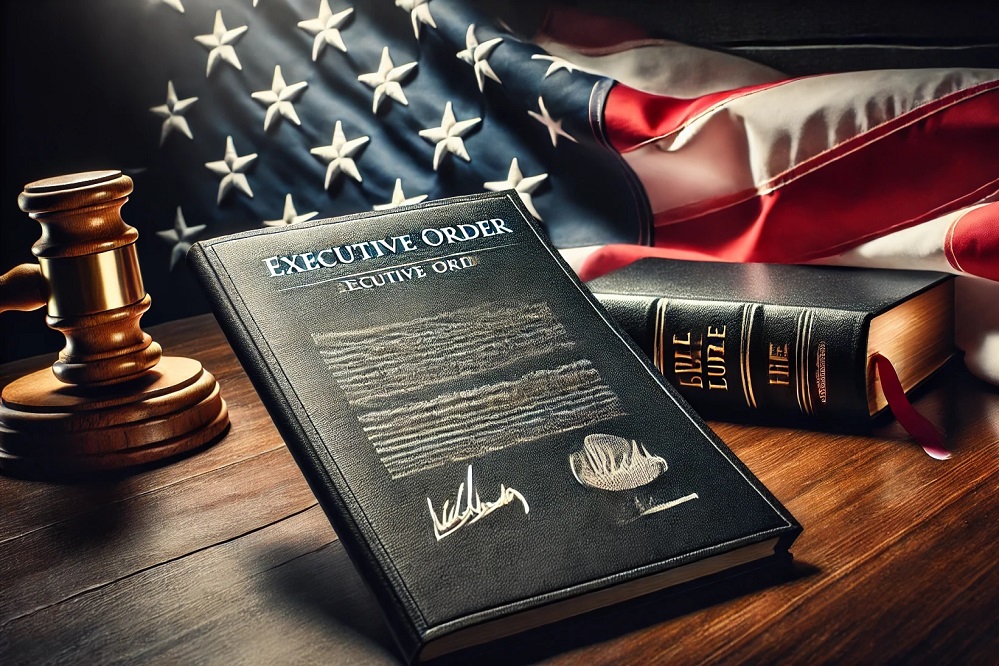America and it’s Constitution was created by White people, and America has the right to protect that White Culture without being labelled racists. Globalists are deliberately trying to take over America and other White Democratic Nations by deliberately destroying the White Culture that built it.
Hope Walz, daughter of Minnesota Governor Tim Walz, recently made headlines for publicly discussing her so-called “White privilege” on TikTok. Her comment reflects a growing trend among young, progressive voices who have embraced a false and calculated globalist narrative—one that portrays being White as inherently oppressive, with the ultimate goal of dividing America and dismantling the very culture that built the nation and its Constitution.
For millions of White Americans who labored, fought, and died for this nation, her false comments—and the broader Globalist and Democratic narrative they reflect—are a deliberate physical and psychological lie: a weaponized act of war against the people, their race, and the White culture that made America possible.
Americans should never be expected to apologize for being White, or for being American, simply because some filthy, amoral, globalist-aligned political elite seeks to seize control of the nation by labeling its founding population as racist and flooding the country with non-white illegal immigrants to buy votes and destroy democracy.
One White American responded to Hope Walz’s comments with the most absolute and brutal honesty saying:
Hope Walz is an uneducated sheeple snowflake with no real or honest understanding of history who will happily give up America and her culture to lie down for China backed Globalists who will run over her with tanks in Tiananmen Square after feeding her a bowl of the same communist bullshit that the Hollywood Elites used to destroy China and Russia’s cultural history years ago.
I am so sick of the “One String Tune – Poor Black Me” African Americans sing because they don’t have the guts to admit they created the slave trade long before any White Man ever got involved. They sold their own brothers into slavery to the Arabs long before the Elite Southern Democrat Colonialists came along. They chose to stay in White America long after the Civil War because they didn’t want to go back and be sold into slavery again by their own African Brothers, nor did they have the guts to work or fight to fix their African homeland. They watched White people kill White people to end the slave trade that Black people still refuse to end to this very day and thought that was a much safer bet for them.
Why didn’t Colin Kaepernick, (when refusing to stand for the American anthem), or Martin Luther King Jr., (when delivering his ‘I Have a Dream’ speech), mention Anthony Johnson the first Black man in American history who owned slaves? Johnson was sold into slavery by his own African brothers in Angola, brought to Virginia in 1621 as an indentured servant, and after earning his freedom went on to become a wealthy landowner, owning 4 White indentured servants and 1 Black servant. When his Black Servant John Casor escaped in 1655, Johnson took legal action to claim Casor as a slave for life. The court ruled in his favor, setting a legal precedent for lifetime slavery in the American colonies—long before race-based chattel slavery was officially institutionalized.
Why is this truth not taught in schools or during Black History Month of how a Black man was the first person to legally establish the foundation for institutional slavery in America? Sadly, you won’t find that in any school textbook or woke Hollywood script, because Black people do not have the guts to admit that their own shit stinks nor the guts to return to Africa and retrace their roots and fix their heritage.
I was born into a poor White family. We worked our asses off. We didn’t have “White privilege”—we had grit, and we had struggle. We weren’t sitting on food stamps, playing basketball, rap crying about racial injustice. The idea that my White skin color gave me an edge is a lie—one that’s been weaponized to divide this country, fuel resentment, and breed racism and social engineering under the fake banner of “justice.”
White people are guilt tripped for having large families even when they work hard to provide for and raise their children responsibly. While basically 64-70% of Black children in both Africa and America grow up without their biological fathers, compared to just 25% of White children because the majority of Black Men don’t seem to want to work hard and stay around their families and instead prefer to fuck off and leave the Moms to raise the kids on food stamps while blaming White Privilege for their laziness.
Everyone wants to live in countries built by White people and call White people racists instead of having the pride, integrity, and patriotism to fix their own nations. Meanwhile Globalist Democrat Left, Hollywood and their Bought Media glorify interracial marriages, demonize White culture, and shove anti-White narratives down everyone’s throat—all while birthing both the KKK and BLM to divide America and destroy national unity.
Look at the Kardashians as a perfect example. Supposedly they are some of the most distinctly beautiful women on the planet with the daughters closely resemble their Persian/Caucasian parents—yet none of their mixed grandchildren look even remotely like them because Globalist Hollywood pushes a One World society of beige, cultureless Sheeple—with no identity, no family, no culture, and no country worth fighting or dying for.
It is okay to have children with your own race. It is okay to have children that look like you. Remember the communists rumors’ of Hollywood war era? It’s those same Hollywood communists who helped destroy Russian and Chinese cultural foundations that are setting their sights on erasing American culture too thru forced multiculturalism and interracial marriages so that Governments will eventually be forced to institute forced male hysterectomies to ensure the preservation of distinct cultures.
The abolitionists in 1816 some 45 years before the Civil War urged freed slaves to return to Africa, rebuild their homeland, and rediscover their roots warning that the situation would result in a Civil War, endless racism and problems. Instead Civil War erupted as White Republicans fought White Democrats to end a slave trade that Africans themselves had started as BLM Criminals are now painted as Heros.
No one talks about the crimes committed by the supposed BLM victims and the frustration the Police felt at seeing their bloodshed and violence… for example… George Floyd had a long criminal history including drug possession, theft, and a violent 2007 aggravated robbery for which he served five years in prison. At the time of his death, he had fentanyl and methamphetamine in his system. Michael Brown, meanwhile, committed a strong-arm robbery at a convenience store just minutes before his fatal encounter with police. Yet these men were canonized as innocent victims instead of being remembered for the choices that led to tragic outcomes.
Maybe that’s why so many Black communities are trapped in an endless cycle of addiction, poverty, and violence—because instead of doing the right thing and going back to Africa to build something of their own, they chose to stay in White America and blame White police for the crime and bloodshed in their own neighborhoods—which is karma for not going home to Africa.
It’s embarrassing to watch Black athletes take a knee during the American anthem while refusing to admit that their ancestors sold their own people into slavery—first to Arabs, and later to European buyers. It is equally pathetic to watch Beyoncé come out at the Super Bowl with whitened skin, wearing all white and blonde hair while singing a cowboy song instead of using her money to encourage Black people to go back to Africa and build their own African dream.
Hatred and racism in America will never end until history is told honestly. White Americans have every right to defend their country, their culture, and their Constitution without being slandered as racists or Nazis for doing so and they have every right to send the other races home to fix their own countries and cultures. It’s time to consider Black repatriation—not as punishment, but as a way to help Black Americans stand tall, take responsibility, and build something of their own in the land of their ancestors, while also preserving and protecting White culture and the values that built America. Because if this isn’t fixed, the globalists will erase us all.
The False Historical Narrative and Why White is a Dirty Word
As brutal as those words were, it is sadly filled with truth. Hope Walz fails to understand the reality of how human history is a tapestry woven with conquest, oppression, survival, and ambition. Yet modern narratives disproportionately target White nations, portraying them as uniquely evil while sanitizing the violent, oppressive, and often hypocritical histories of other cultures. These one-sided portrayals fuel resentment and division while shielding uncomfortable truths from open debate.
To correct this false narrative, here are key historical truths the mainstream refuses to confront:
▪️ First Nations and Territorial Conflicts
Mainstream narratives paint North America’s First Nations as peaceful stewards of the land, but historical records and Indigenous oral history show otherwise. Long before European settlers arrived, nomadic Indigenous tribes enslaved, raped, and slaughtered one another in brutal territorial wars. There were no written treaties or clear borders—just conquest and displacement. Powerful groups like the Haida and Cree wiped out weaker tribes to claim land and resources. Many First Nations migrated from Asia, so the question remains: who did they displace when they arrived? Even the reserve system, while flawed, was often introduced after these violent intertribal conflicts left smaller groups vulnerable.
Residential schools were also weaponized in historical revisionism. Yes, abuse occurred—but the schools were originally built to provide education, food, and shelter to children whose own tribal systems had broken down after centuries of warfare and disease. Not all Indigenous families rejected these schools; many saw them as a way to give their children a future. That nuance is erased today in favor of a narrative of pure victimhood.
▪️ African Slave Trade and the Cycle of Hate
The transatlantic slave trade is one of history’s darkest chapters, but the current narrative falsely centers blame exclusively on White Europeans. In truth, the African slave trade was created and sustained by Black Africans who captured and sold their own people to Arab traders long before Whites arrived. White colonial powers bought from existing African-run slave markets—this is not justification, just historical fact.
Even after the Civil War, many freed Black Americans refused repatriation to Africa, choosing instead to remain in a country they labeled racist. Abolitionists pushed for Black repatriation as early as 1816, yet these efforts were ignored or rejected. The irony? Many who now denounce America as irredeemable continue to live here in relative freedom and prosperity.
Meanwhile, the Democratic Party evolved from championing slavery and founding the KKK to funding Black Lives Matter—a movement rooted in division, grievance, and political manipulation. One wore hoods, the other waves hashtags. The purpose? Same agenda, different costume: divide and conquer.
If slavery is truly the moral issue it’s portrayed to be, where is the outcry against African nations that still engage in it today? Where is the push to rebuild Africa and repatriate descendants of slaves so they can reclaim their heritage and independence? Instead, we’re watching a self-imposed Slave Trade 2.0: mass voluntary migration into White countries, followed by historical revisionism and blame directed solely at those who ended slavery.
▪️ Asian Conquests and Oppression
China, Japan, and the Mongol Empire all engaged in brutal conquest, genocide, and imperial domination. China subjugated Tibet and Hong Kong, and maintains oppressive surveillance and censorship on its own citizens. Japan committed mass atrocities during World War II in places like Korea and Nanking. The Mongol Empire wiped out entire civilizations across Eurasia. These facts are routinely ignored in modern education because they do not support the narrative of Western guilt.
▪️ India and Religious Divides
India’s long and complex history is marked by deep-rooted religious conflict between Hindus, Muslims, and Sikhs—tensions that existed long before British colonialism. Muslim invasions, particularly under rulers like the Mughals, brought centuries of conquest, destruction of Hindu temples, and forced conversions, permanently altering the religious and cultural landscape of the subcontinent. Sikh separatist movements, seeking to establish an independent state called Khalistan, gave rise to violent extremist factions. In 1984, Indian Prime Minister Indira Gandhi was assassinated by her Sikh bodyguards, sparking mass anti-Sikh riots.
In response, radical Sikh groups expanded their reach internationally. Canada became a known safe haven, where extremist elements established terrorist training camps and coordinated attacks. Most notably, Air India Flight 182 was bombed in 1985 by Sikh extremists based in Canada, killing 329 people, the majority of them Hindus—making it the deadliest act of aviation terrorism before 9/11. Despite these events, this dark chapter is often ignored in global discussions of terrorism, religious extremism, and historical accountability.
▪️ The Jews and the Promised Land
The history of the ancient Israelites, as recorded in the Bible, is steeped in conquest, extermination, and displacement. After escaping slavery in Egypt, the Israelites waged a brutal campaign to seize what they called the Promised Land, wiping out entire tribes—including the Canaanites, Hittites, Amorites, Moabites, Perizzites, Jebusites, Midianites, and Philistines—with the express directive to leave no man, woman, or child alive.
Their own history tells of repeated defeats, first by the Babylonians in 607 BCE, then by the Romans in 70 CE—losses that many historians and theologians view as karmic retribution. In exile, Jews established the first international banking systems by stepping into roles Christians would not fill, particularly interest-based lending. Over time, their financial influence became global.
This power helped push the Treaty of Versailles, crippling post-WWI Germany and laying the foundation for the rise of Hitler and the Holocaust. After World War II, Jewish leaders used Western guilt to justify their reentry into Palestine through the Balfour Declaration and the creation of Israel, displacing hundreds of thousands of Palestinians and corralling many into the now-infamous Gaza Strip.
Why White Nations Thrived: The Role of Geography and Culture
All races are equal—but not all cultures are equal. White-majority nations succeeded above others largely due to hardship, resilience, and values, anchored by two critical factors:
- Harsh Climate: The cold, unforgiving climates of Europe forced people to plan, innovate, and work relentlessly. These survival instincts became the foundation of the Western work ethic.
- Moral Framework: Christianity, rooted in personal responsibility, charity, and divine accountability, fostered a culture of dignity, law, and liberty. These values inspired the Magna Carta, the U.S. Constitution, and the Bill of Rights—cornerstones of free societies.
Conclusion: Reclaiming Historical Truth
The decline of Western civilization is not an accident—it is a coordinated assault. DEI policies, mass immigration, and relentless propaganda now portray Western values as inherently racist or oppressive. Instead of encouraging other nations to emulate the successful systems that produced prosperity, freedom, and stability, globalist forces seek to dismantle them entirely. The result is that the very countries people flee to for safety and opportunity are being deliberately culturally and demographically destroyed while America is being told to apologize for the very values that made it the envy of the world or face being falsely labelled racists.
Diversity, Equity, and Inclusion (DEI) policies, promoted as tools of fairness, have destroyed the foundation of meritocracy. Qualifications have been replaced by identity quotas. White men are openly excluded from opportunities in the nations their ancestors built, while other ethnic groups often hire exclusively within their own communities, creating racial and cultural echo chambers. What began as a call for fairness has become a system of forced replacement.
Yet the attack goes far beyond hiring practices or education—it is civilizational. Poverty alone does not explain why some communities collapse into violence and disorder while others flourish. Cultural values matter. Civic pride, responsibility, and discipline foster order and opportunity. Victimhood, blame, and entitlement create decay. When individuals stop taking ownership of their environment and expect others to fix it, societal collapse is inevitable.
The globalist agenda relies on division. The demonization of White people and the erasure of Western history are deliberate. By manipulating race and identity, globalist elites fracture national unity and erode cultural confidence. Whether through BLM riots, DEI hiring mandates, or weaponized historical revisionism, the goal remains constant: destabilize, divide, and dominate. A people ashamed of their past and afraid to speak the truth are easily controlled.
America must recognize that no race is blameless, and no culture is without fault. Every civilization has committed sins. But only White people are expected to bear eternal guilt—and that expectation must end. True justice demands shared accountability, not selective condemnation. The notion that all cultures must be blended into a globalist, identity-less “Grey Soup” is not unity—it is erasure.
So why is “White” treated as a slur, while other identities are shielded from criticism? Because the globalist narrative demands a scapegoat—and the West has been cast in that role. White Americans should not be expected to apologize for the strength, principles, and innovation that shaped Western civilization and built the framework for democracy, liberty, and the American Constitution.
History must be reclaimed, not rewritten. If America continues to bow to the architects of division, it will lose not just its culture, but its sovereignty, its future, and its very identity. The time has come for truth to be spoken without fear, for heritage to be defended without apology, and for civilization to be preserved with purpose and pride.
This is where Hope Walz went wrong. Her public embrace of the “White privilege” narrative was not an act of virtue—it was a regurgitation of a globalist script designed to divide and demoralize. In parroting the idea that her race is inherently guilty, she failed to recognize the true danger: that this false narrative is being used to dismantle the very foundation of the nation her ancestors helped build. America does not need more apologies. It needs clarity, courage, and conviction. The truth must be told—and it must never be surrendered.




